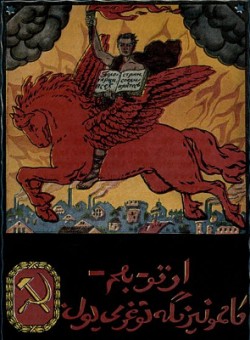The International Criminal Court in The Hague has compared the Russian annexation of Crimea to an international war conflict. This stance was made public in the annual report on the preliminary investigation by prosecutor Fatou Bensouda.
“The situation in Crimea and the city of Sevastopol can be described, with regard to information acquired, as an international armed conflict between Ukraine and the Russian Federation,” the report stated.
The report also states that the conflict began 26 February when the Russian Federation rallied troops in order to take control of Ukrainian territory. After 18 February 2014, This situation can be compared to an ongoing occupation.
The prosecutor also acquired information about the oppression of Crimean Tatars on the peninsula and the violent kidnapping of 179 arrested Tatars to Russia or violent conscription. The report stresses the fact that the investigation of these events and accumulation of information will continue in the following year.
This means that The Hague recognizes Russia as being responsible for waging war on Ukraine. Considering that President Putin recently launched active military operations in Crimea and in the Eastern Ukrainian city of Donbas, we can expect further conclusions on Russian military operations in Syria, as well.
An extraordinary piece of news made headlines the next day. The UN passed a new resolution that labelled Russia as an occupying state and Crimea a temporarily occupied territory.
Russia’s reaction was instantaneous. President Putin ordered the Ministry of Foreign Affairs to announce that Russia is withdrawing from the Rome Statute of the International Criminal Court. This means Russia will not have anything to do with the ICC. Unfortunately for Putin, withdrawing from a treaty does not get rid of the crimes committed and the responsibility for those.
Even if Putin knows how to make deals with various politicians, a court should remain impartial. With regard to how the investigation in The Hague is going, hope for justice is still alive.
published: 5. 12. 2016







